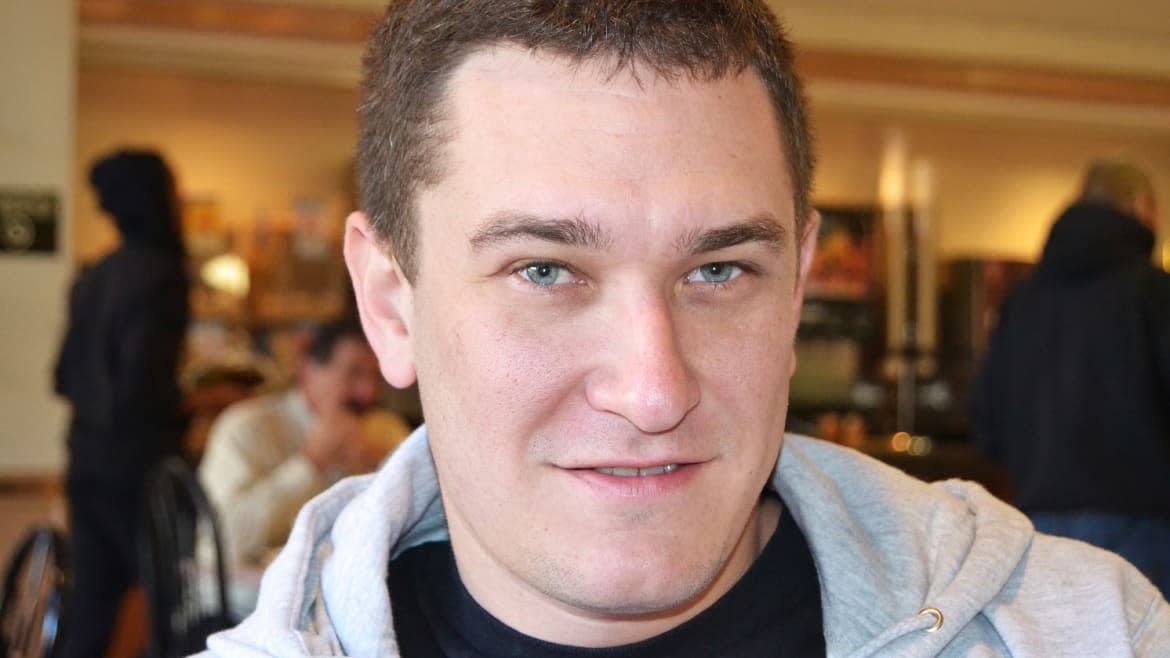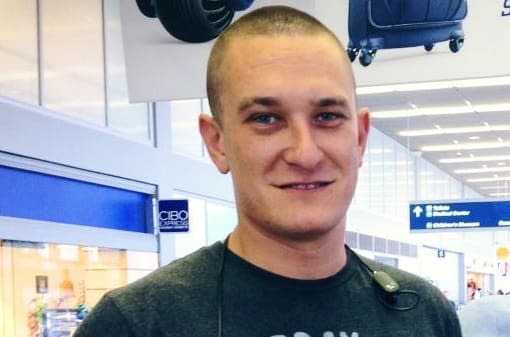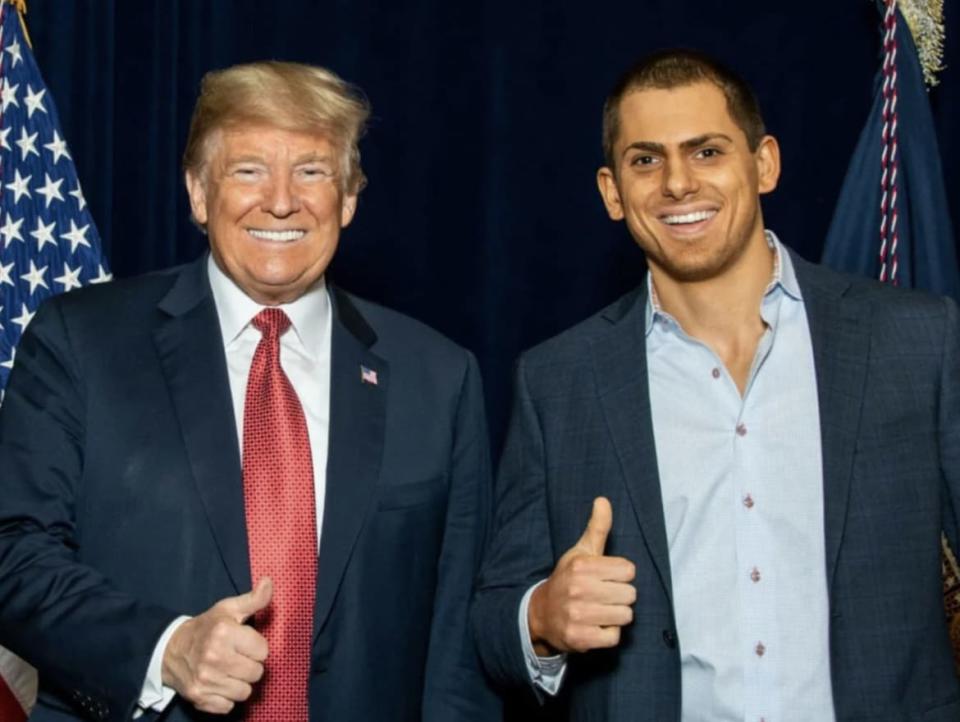This Prisoner Was Punished for Calling FBI About Sex Crimes

Of all the injustices in the scandal-plagued U.S. prison system, this one stands out: a man penalized with a longer sentence—during which he got COVID-19 and was trapped in solitary confinement—for trying to help the feds prosecute an underage sex trafficking case.
When the FBI was investigating the alleged sex crimes of a young, wealthy Republican operative in Minnesota last year, he confided in an old friend: a former player in the Los Angeles porn industry who was serving time in federal prison for drug dealing.
Unbeknownst to that GOP operative, Anton Lazzaro, his buddy was actually utterly disgusted at the way he bragged about preying on teenage girls. From a prison in rural Florida, Lazzaro’s friend, Benjamin Freedland, memorized details that amounted to a confession, jotted down examples of his friend’s past predations, and urgently tried to get in touch with the FBI.
But Freedland couldn’t get past the FBI Minneapolis field office’s phone switchboard. Inmate calls work like collect calls—the person who picks up must dial a button to accept it. So instead, he phoned a friend outside prison walls and had him three-way call the feds.
GOP Strategist Arrested for Underage Sex Trafficking
For that act of ingenuity, Freedland was sentenced to an additional month behind bars, according to disciplinary records obtained by The Daily Beast.
And during that extended time, he got sick with COVID-19 and developed symptoms, according to a family member.
“It’s like calling 9-1-1 to report a crime, then going to jail,” Freedland said by phone earlier this month. “This just highlights the injustice of offenses we should not be punished for. Even the officers here at this prison think this is outrageous.”
For sharing documents of his punishment with this reporter, Freedland expected further reprisal—in the form of solitary confinement in a “Special Housing Unit” by being locked away 24 hours a day in a smaller cell.
“I will go to the SHU with a smile on my face,” he said then.
Days after that call, Freedland was allegedly forced into solitary confinement, a move he called “a feckless attempt to silence me.” Freedland described his situation in a letter he apparently snuck out and had mailed to a friend.
“My placement in solitary is entirely retaliatory and proves the egregious misconduct of my prison and the BOP as a whole,” Freedland wrote in a signed letter that was dated and postmarked on Tuesday.
The Bureau of Prisons and the federal correctional institution in Marianna, Florida both refused to confirm whether Freedland was placed in solitary confinement or answer questions about the situation.
“For privacy, safety, and security reasons, we do not release information on an individual inmate’s conditions of confinement, to include disciplinary history or medical information,” said Emery Nelson, a spokesperson at the prison agency.
FCI Marianna also would not make its acting warden, Charles Harrison, available for an interview.
The American prison system’s frequent use of prisoner seclusion in small, windowless cells has been under attack for years and was described by a United Nations human rights expert in 2020 as akin to psychological torture.

Freedland was sentenced in 2016 to seven years in prison for having a gun while trafficking cannabis from California to Pennsylvania. But he was due to be released in December. He had hoped to spend the holidays with his family. His expected release has since been pushed back to Feb. 4.
“It’s terrible,” said his father, Daniel Freedland, a college professor at Loyola Marymount University. “It makes you feel awful knowing that there’s nothing you can do. He’s a very strong-willed guy, and when he feels that something is unjust, he’s going to do whatever he can to make it just. Sometimes he forgets that he’s in prison. They’re in charge, not him. Like it or not, it’s their rules.”
The FBI in Minneapolis did not respond to a request for comment. The U.S. Attorney’s Office there declined to comment. And an attorney for Lazzaro did not answer questions sent Friday.
Freedland told The Daily Beast about his repeated failed attempts to reach the FBI and expressed frustration that investigators hadn’t yet responded. Freedland claims that Lazzaro turned to him after the FBI raided the wannabe playboy’s Minneapolis condo in December 2020. He described feeling baffled at how Lazzaro would call him by phone and admit to his encounters with teenage girls—and his alleged preference for the younger looking ones—on a phone line that was obviously being recorded by the prison. At the time, the FBI was quietly investigating how Lazzaro allegedly targeted teenagers and would take them to his apartment.
Realizing federal agents might need additional evidence, Freedland began collecting everything he knew about his former friend and business partner, like the way Lazzaro allegedly tried to use Freedland’s connections in the porn industry to hook up with young-looking girls. He also kept a list of potential witnesses, like Lazzaro’s ex-girlfriends. He claims he informed prison guards and asked to be put in touch with the FBI, but nothing came of it.

Anton Lazzaro with Donald Trump
When The Daily Beast broke the news in August about Lazzaro’s arrest and indictment in August for underage sex trafficking, federal prosecutors at the U.S. Attorney’s Office in Minnesota put out a call for help.
“Based on the evidence obtained in this investigation, authorities believe there may be additional victims of the alleged conduct. Anyone with information about this matter is encouraged to call the FBI Minneapolis Division at 763-569-8000,” a press release stated.
The next month, on Sept. 14 at 10:35 a.m., Freedland grew impatient and asked his friend in Chicago to call the FBI on his behalf. The Daily Beast spoke to that friend, who asked not to be identified and described the call exactly how it’s depicted in prison disciplinary records.
“Is there any way you can help me get through to a number?” Freedland asked him, providing him the contact for FBI Minneapolis.
His friend patched in the FBI office’s main line, then put his iPhone down on his work desk. When he checked it a minute later, the call was dead.
Freedland never actually reached an FBI special agent. But that evening, a “communications monitor” at the prison facility listened to a recording of the call and issued a formal complaint.
The next day, Freedland was served with a written notice that he’d broken rule number 297, “phone abuse-disrupt monitoring,” which is when a prison guard cannot track which number was called. (Even though Freedland dictated which number was to be called.) At a disciplinary hearing two weeks later, documents show, Freedland openly admitted to what he did but maintained, “I don’t think I’m guilty.”
They’re Closing the Prison Where I Met Jeffrey Epstein. It’s About Time.
The facility’s chief psychologist, Dr. Martin-Brown, confirmed that Freedland “during individual counseling sessions” had explained his concern with this former business partner’s “illegal activities,” according to records we obtained.
Still, the discipline hearing officer made this conclusion: “The DHO finds you guilty of utilizing three-way calling, which is a direct violation of the rules and regulations.” While the prison officer acknowledged that Freedland was motivated “in an attempt to reach the FBI to report a crime,” it didn’t matter.
“This type of behavior will not be tolerated at this facility,” the report reads.
The friend on the other end of that call told The Daily Beast that Freedland only wanted to help.
“He was trying to do the right thing and protect these girls who weren’t able to protect themselves. He asked me to act on his behalf and connect with the people who were in a position to stop these types of activities from happening,” he said.
Freedland told The Daily Beast he was eventually able to connect with FBI special agents and relay information about Lazzaro, a point that was confirmed by a law enforcement source.
Freedland’s father said that his son’s suffering in prison has been difficult to bear.
“It’s like theater of the absurd. You can’t win. You try to do good and you get shot down for it. Let’s face it, they have to have rules. But there have to be exceptions to rules, and I would certainly consider that one of them,” he said.
Get the Daily Beast's biggest scoops and scandals delivered right to your inbox. Sign up now.
Stay informed and gain unlimited access to the Daily Beast's unmatched reporting. Subscribe now.

